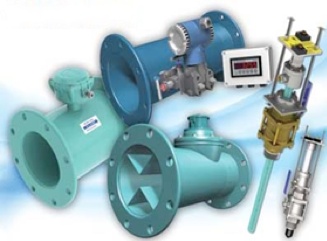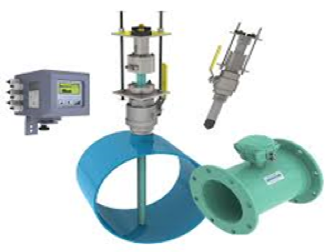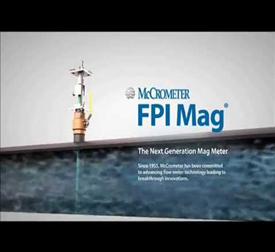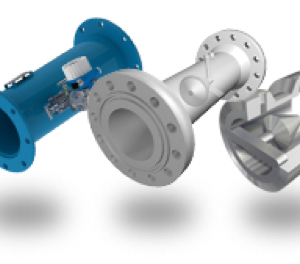Description
What are Electromagnetic Flow Meters?
Electromagnetic flow meters, also called mag meters or magnetic meters, are volumetric flow meters which do not have any moving parts to wear, reducing the need for maintenance or replacement. Accuracy over a wide flow range can be as good as ± 0.5% of flow rate or better.
They feature an obstruction-free design which eliminates flow impediment and operate with electrodes embedded on opposite sides of the flow tube or sensor to pick up the signal. Mag meters perform extremely well in many municipal and processing applications, and have become the meter of choice for measuring conductive liquids such as water or slurry.
How Does a Mag Flow Meter Work?
All mag meters operate under the principle of Faraday’s Law of Electromagnetic Induction to measure liquid velocity. The principle of operation states that a conductor moving through a magnetic field produces an electric signal within the conductor, which is directly proportional to the velocity of the water moving through the field. In essence, as fluid flows through the magnetic field, conductive particles in the fluid create changes in voltage across the magnetic field. This variation is used to measure and calculate the velocity of water flow through the pipe.
Advantages of using Electromagnetic Flow Meters
The main advantages of using magmeters is that they require less maintenance and can be ordered for very large line sizes. Some, such as McCrometer’s FPI Mag for example, can be installed with a simple hot tap which does not require shutting down the line. Mag meters also have the benefit of adding a level of trust for consumers: they hold the service provider accountable for the actual water being produced and/or billed. These efforts will assist with preservation of our water resources while improving profitability for the utility.
Disadvantages of using Magnetic Flow Meters
It depends on the meter itself. Some flow tube meters have a liner which can separate from the meter causing system damage and requiring maintenance. Look for a meter that does not require a liner, such as McCrometer’s Ultra Mag flanged magnetic meter with a NSF-approved, fusion-bonded epoxy liner: the UltraLiner. Mag meters don’t work on nonconductive fluids such as oils, steam or gas.
Electromagnetic flow meters are typically the meter of choice when measuring a conductive liquid which is water based, such as drinking water or wastewater, especially important when considering cost, accuracy, and longevity. You can be sure McCrometer has an ideal solution for your application.






Recent Comments